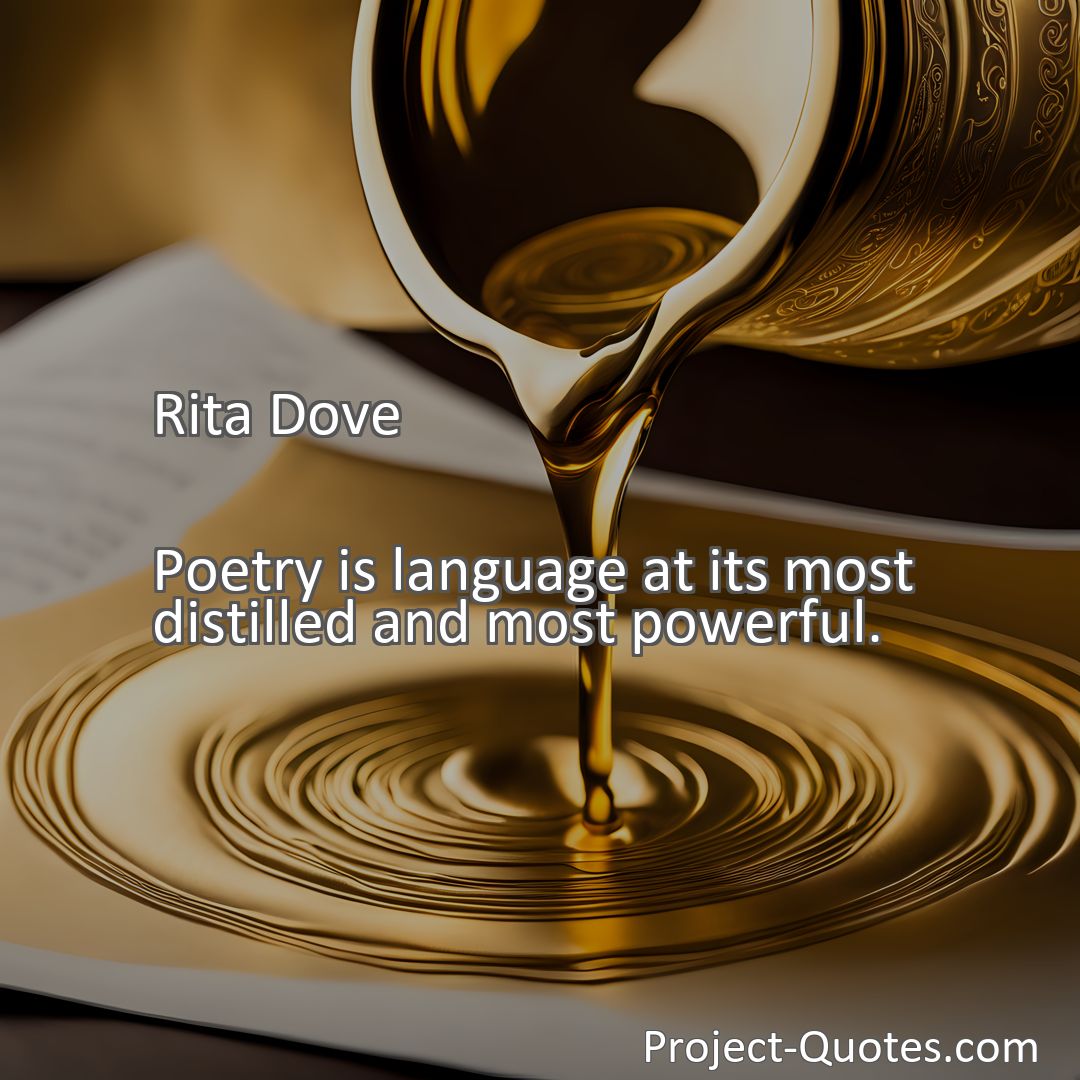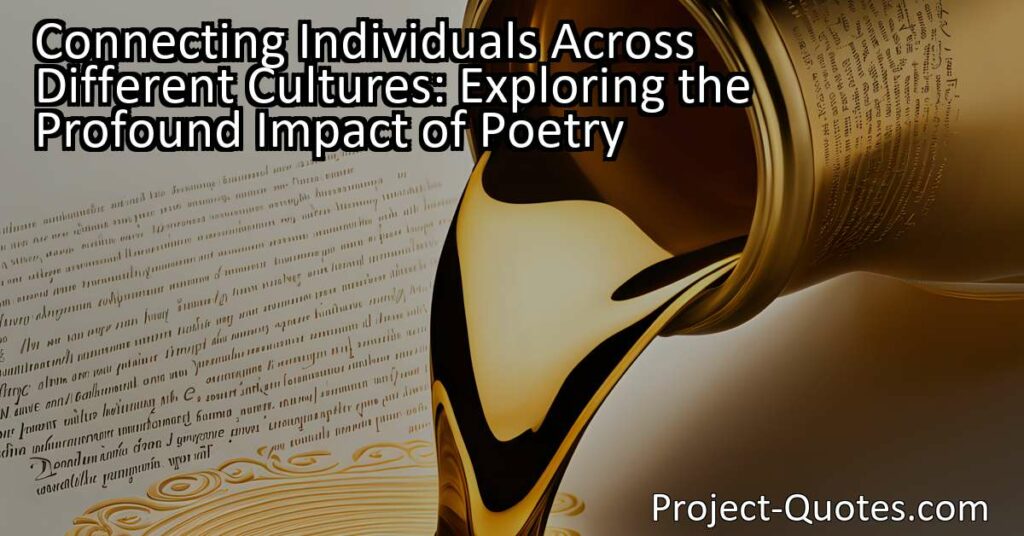Poetry is language at its most distilled and most powerful.
Rita Dove
Connecting Individuals Across Different Cultures: Exploring the Profound Impact of Poetry Poetry, described as language at its most distilled and powerful, has the ability to connect people from different cultures and generations. Through its condensed and carefully crafted nature, poetry evokes strong emotions and allows readers to step into the shoes of others, fostering empathy and understanding. By engaging with poetry, we unlock the beauty and power of language, creating a deeper connection to ourselves and the world around us.
Table of Contents
Meaning of Quote – Poetry is language at its most distilled and most powerful.
Poetry has been hailed as a unique form of literary expression that captures the essence of human emotions and experiences. It is often described as language at its most distilled and most powerful. This quote, attributed to poet Rita Dove, highlights the profound impact that poetry can have on both the reader and the writer.
At its core, poetry is a creative and artistic way of using language. While prose communicates thoughts and ideas through sentences and paragraphs, poetry takes a different approach. It condenses language, using carefully chosen words and phrases to convey meaning in a concise and impactful manner. This distillation is achieved through various literary devices such as metaphor, simile, imagery, and rhythm. By utilizing these techniques, poets can evoke strong emotions, paint vivid pictures, and provoke deep thoughts within the reader.
One of the reasons poetry is considered language at its most powerful is because it has the ability to transcend time and space, connecting individuals across different cultures and generations. Through the power of language, poetry allows us to step into the shoes of others, immersing ourselves in their thoughts and experiences. It provides a window into the human condition, offering insights into the complexities of love, loss, joy, and sorrow.
Furthermore, poetry has the capacity to express what cannot be easily conveyed through everyday language. It taps into the ineffable and intangible aspects of our existence, touching on the realms of spirituality and the mysteries of life. Poets often explore themes and concepts that are difficult to articulate directly, and through their craft, they provide a glimpse into the depth and complexity of our shared human experience.
The distillation of language in poetry also enhances its impact and memorability. When words are carefully chosen and arranged, they become imbued with an intensity that lingers in the mind of the reader. Poetic language often possesses a musical quality, with a rhythm and cadence that draws the reader in and creates a sense of harmony. This melodic quality aids in the retention and recitation of verse, allowing poetry to be passed down through oral traditions and memorization.
Moreover, poetry provides a platform for personal expression and reflection. For both readers and writers, poetry can be a means of self-discovery and introspection. Through the act of writing poetry, individuals have the opportunity to process their thoughts and emotions, giving shape to their innermost experiences. By engaging with poetry, readers can also explore different perspectives and gain insights into the lives and struggles of others, fostering empathy and understanding.
Additionally, poetry encourages a deeper engagement with language itself. As readers encounter imaginative and evocative uses of words, they develop a heightened appreciation for the beauty and power of language. The concise and focused nature of poetry demands precision in word choice and structure, which enhances vocabulary and language skills. This increased linguistic awareness can have a positive impact on a reader’s overall literacy and communication abilities.
In the realm of education, poetry plays a crucial role in developing students’ literacy skills and fostering a love for language. By exposing students to a diverse range of poetic styles, themes, and voices, educators can cultivate an appreciation for literature and encourage creative expression. Through the study of poetry, students can explore literary devices, analyze symbolism, and interpret meaning, building critical thinking skills.
In conclusion, poetry, as Rita Dove states, is language at its most distilled and most powerful. Its condensed and carefully crafted nature allows it to convey deep emotions and complex ideas in a concise and impactful manner. Poetry has the ability to bridge cultural gaps, express the inexpressible, enhance memorability, and provide a platform for self-expression and reflection. By engaging with poetry, we unlock the beauty and power of language, fostering a deeper understanding of ourselves and the world around us.
I hope this quote inspired image brings you hope and peace. Share it with someone who needs it today!


